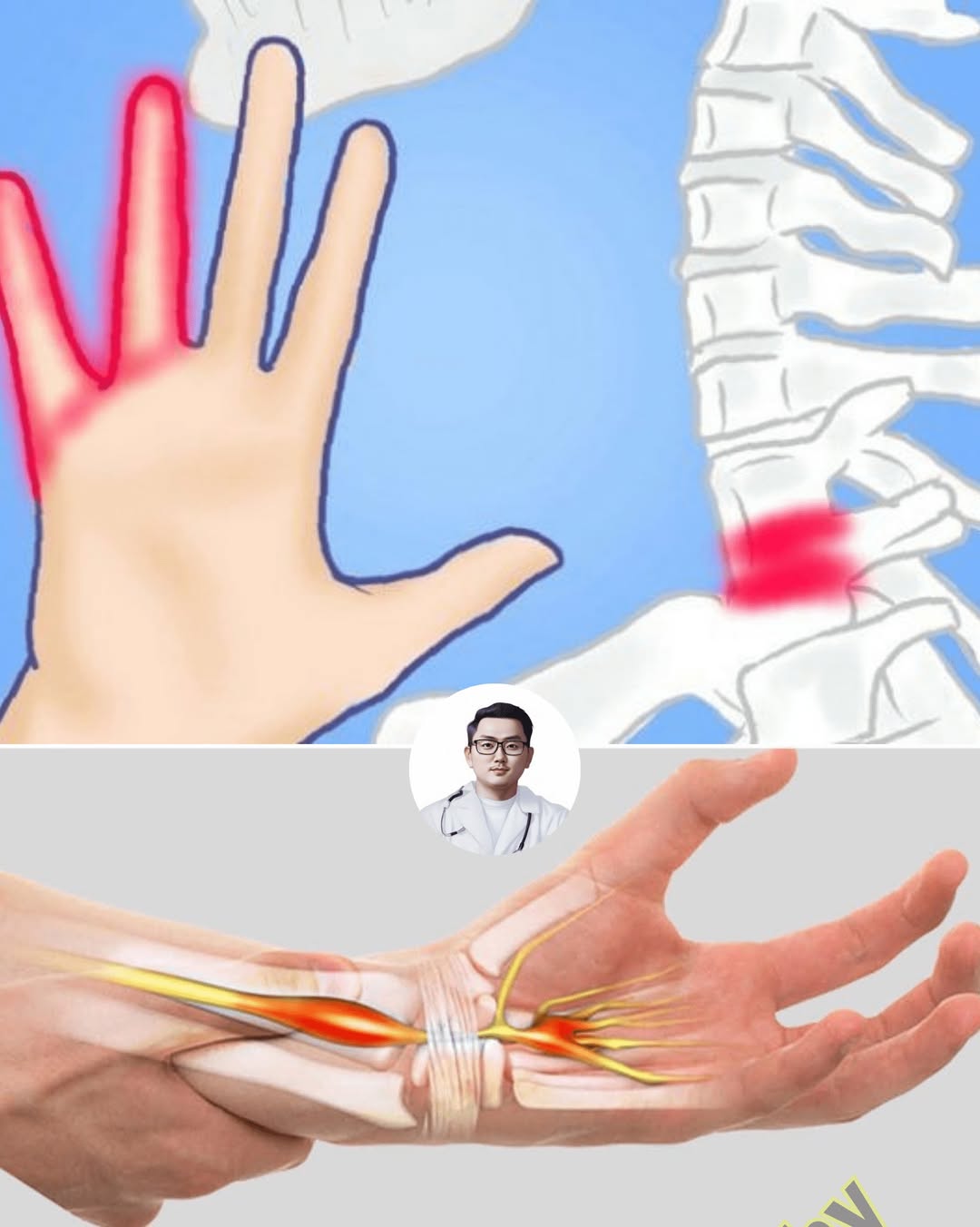
Experiencing a tingling or numb sensation in your hands can be unsettling. While occasional numbness might result from temporary pressure on nerves, persistent or recurrent symptoms could indicate underlying health issues. Understanding the causes and knowing when to seek medical attention are crucial steps toward maintaining optimal hand health.
Common Causes of Hand Numbness
Hand numbness can arise from various factors, ranging from benign to serious conditions:
-
Nerve Compression Syndromes: Conditions like carpal tunnel syndrome, where the median nerve is compressed at the wrist, can lead to numbness, tingling, and weakness in the hand. Similarly, cubital tunnel syndrome involves compression of the ulnar nerve at the elbow, affecting the ring and little fingers .
-
Cervical Spine Issues: Degenerative changes in the neck, such as arthritis or herniated discs, can compress nerves that travel into the arms, leading to numbness or tingling sensations in the hands .
-
Peripheral Neuropathy: Often associated with diabetes, this condition involves damage to peripheral nerves, causing numbness, burning, or tingling sensations in the hands and feet .
-
Vitamin Deficiencies: Lack of essential vitamins, particularly B12, can lead to nerve damage manifesting as numbness or tingling in the extremities
-
Repetitive Strain Injuries: Engaging in repetitive tasks, such as typing or assembly line work, can strain hand muscles and nerves, leading to numbness over time
When to Seek Medical Attention
While occasional hand numbness might not be alarming, certain signs warrant prompt medical evaluation:
-
Persistent or Worsening Symptoms: If numbness persists or progressively worsens, it’s essential to consult a healthcare provider
-
Accompanying Weakness or Pain: Numbness coupled with muscle weakness or pain could indicate nerve damage that requires medical intervention
-
Numbness in Both Hands: Experiencing numbness in both hands simultaneously might suggest systemic issues like peripheral neuropathy
-
Interference with Daily Activities: If numbness hampers your ability to perform routine tasks, seeking medical advice is advisable
Diagnosis and Treatment Options
Diagnosing the cause of hand numbness typically involves:
-
Medical History and Physical Examination: Discussing symptoms and conducting physical tests to assess nerve function.
-
Imaging Tests: MRI or CT scans may be used to identify structural issues in the spine or wrist.
-
Nerve Conduction Studies: These tests measure how quickly electrical impulses move through your nerves, helping to pinpoint nerve damage.
Treatment strategies depend on the underlying cause:
-
Conservative Therapies: Wrist splints, physical therapy, and ergonomic adjustments can alleviate symptoms in cases like carpal tunnel syndrome .
-
Medications: Anti-inflammatory drugs or medications targeting nerve pain may be prescribed.
-
Surgical Interventions: In severe cases, procedures to relieve nerve compression might be necessary.
Preventive Measures
To minimize the risk of developing hand numbness:
-
Maintain Proper Ergonomics: Ensure that workstations are set up to reduce strain on hands and wrists.
-
Take Regular Breaks: Avoid prolonged repetitive activities without rest.
-
Monitor Health Conditions: Manage chronic conditions like diabetes effectively to prevent complications like peripheral neuropathy.
-
Ensure Adequate Nutrition: Maintain a balanced diet rich in essential vitamins to support nerve health.
Hand numbness can be a benign, temporary sensation or a sign of a more serious condition. Understanding the potential causes and recognizing when to seek medical attention are vital steps in addressing this symptom effectively. By staying informed and proactive, you can ensure the health and functionality of your hands.





